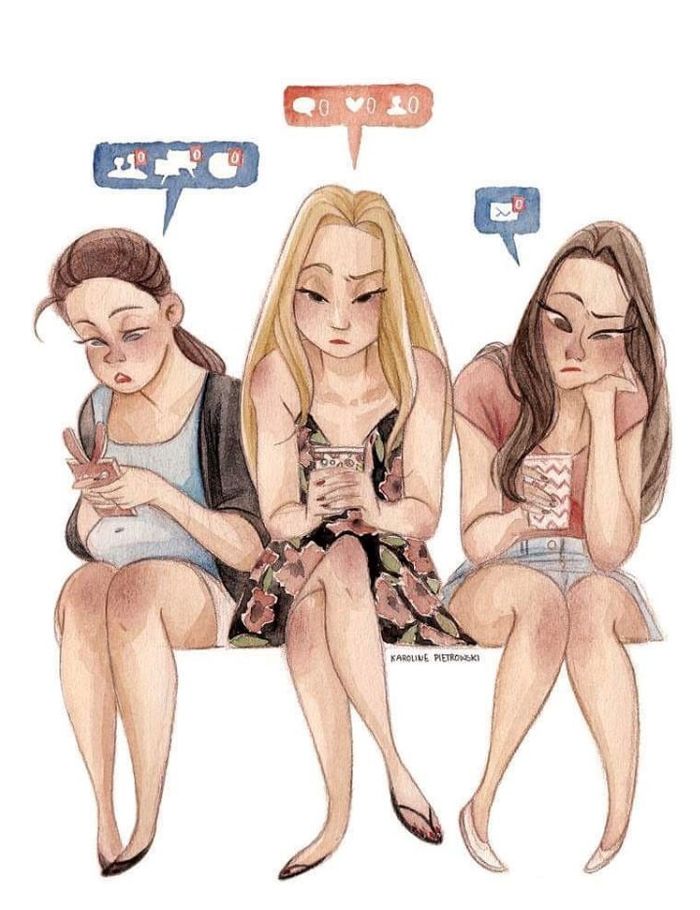A pandemic of productivity
Aditi Chidambaram explores how social media can fuel misconceptions about the meaning of productivity and how she came to redefine what it meant to her

Content Note: This article contains a discussion of the coronavirus pandemic and lockdown.
When I wake up at a leisurely 10 A.M every morning, it’s not with the uninhibited joy of having had a good night’s sleep, but with a feeling of guilt. As soon as I open my eyes, it’s not the sunlight that dances through my window or the pleasant bustling sounds of a household waking up that fight for my attention, but instead an impending to-do list that I can never fully complete.
Although I have more time to spare than ever, I’m still stuck in the Cambridge bubble where every minute is supposed to be spent doing something ‘productive’ - academically or socially. Now I’m home, I’ve attempted to structure my time in a similar way: work, followed by an appropriate fitness regime, rounded off with a healthy snack and some (virtual) time with my family and friends.
There’s no doubt that every article on how to survive this lockdown begins with creating a daily routine. But of late, I’ve begun to wonder what would happen if this structure simply melted away. Would chaos descend if I chose to spend time with my friends playing a game online before I started work? Could baking a cake be my productive task for the day?
“The ever present pull of productivity has made me scrutinise the things that I love doing, even cast them aside.”
Although I enjoy the way social media allows me to keep up with my friends, I can’t help but compare my productivity with theirs. In recent times, social media has resembled a tug of war between those fighting to show that they have made the best use of their time. This contest is damaging to those who can’t find it in themselves to effortlessly create a personal aesthetic.
Perhaps, finding useful things to do is a way to exert some form of control over an otherwise uncontrollable situation. But I’ve found that the ever present pull of productivity has made me scrutinise the things that I love doing, going so far as to cast aside the things I enjoy doing in favour of activities where I can show the world that I’m in control of this lockdown and that I’m not wasting my time.
But in the process I’ve realised that I’ve forgotten what productivity actually means. The word denotes efficiency, often measured by output. But this definition doesn’t mean that the output of productivity always has to be in an academic form, it can be about personal satisfaction. Listening to music, resting and watching a movie might not fall within the traditional sense of useful things to do, but their utility lies in the pleasure and relaxation they offer.
There’s a misconception that in order to be productive, time must be spent improving existing talents and skills. But why can’t we be talented at enjoying ourselves and letting go once in a while? Why can’t the time we spend doing things that we love be classed as productive? In order to cope with this pandemic, we can’t force ourselves to chase a particular definition of productivity at the cost of diminishing the value of what we enjoy doing.
So what have I been achieving whilst stuck at home you ask? Indulging in the sheer joy of doing the things I love, such as rereading nostalgic Enid Blyton novels whilst snuggling with my dogs and in the process, changing the way I define productivity.
 News / Cambridge academics stand out in King’s 2026 Honours List2 January 2026
News / Cambridge academics stand out in King’s 2026 Honours List2 January 2026 Interviews / You don’t need to peak at Cambridge, says Robin Harding31 December 2025
Interviews / You don’t need to peak at Cambridge, says Robin Harding31 December 2025 Comment / What happened to men at Cambridge?31 December 2025
Comment / What happened to men at Cambridge?31 December 2025 News / Varsity’s biggest stories of 202531 December 2025
News / Varsity’s biggest stories of 202531 December 2025 Features / “It’s a momentary expression of rage”: reforming democracy from Cambridge4 January 2026
Features / “It’s a momentary expression of rage”: reforming democracy from Cambridge4 January 2026










